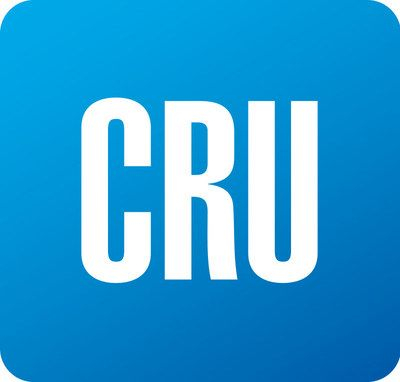CRU

December 17, 2020
CRU: U.S. Buyers Seek Import Options Amid Extreme Supply Tightness
Written by Estelle Tran
By CRU Analyst Estelle Trans, from CRU’s Global Steel Trade Service
U.S. buyers have been watching sheet steel prices skyrocket and found themselves weighing high-priced imports out of necessity. The steel market remains supply short, even with the restart of U.S. Steel Gary No. 4 this month, and market contacts expect that the market will remain extremely tight into Q1 as mills are reporting no spot availability. Sheet markets are tight partly because of faster than expected demand growth at OEMs as well as mill production issues exacerbating delivery delays. On Dec. 16, the CRU U.S. Midwest HR coil price was $899 /s.ton, up $181 from $718 /s.ton on Nov. 18, and expectations are that prices will reach $1,000 /s.ton.
The spike in prices is evident in import offers as well, which have increased with growing global demand and restricted supply. HR coil imports from South Korea ordered for March arrival were priced around $700 /s.ton on a loaded truck basis in Houston, but offers now for May arrival are around $840 /s.ton. Though domestic U.S. buyers are uncomfortable with these prices given views that prices will start to backslide in the middle of Q1, they may be willing to place orders at these levels to ensure consistent supply. We expect imports to increase y/y in H1 as a result. The Dec. 11 flat rolled market trends survey by Steel Market Update, which is part of CRU, reported that 86% of steel buyers said imported steel was becoming more attractive relative to domestic prices.
Similarly, as U.S. rebar and wire rod prices have risen, so have import offers. U.S. wire rod mills announced $95-105 /s.ton price increases last week to keep up with the spike in scrap prices in December. Import volumes have been subdued given their high price, however, buyers are now becoming worried that they will run out of material. For rebar, import prices from Turkey have been workable, though Turkish mills have been booked. Further complicating things, antidumping duties applying to Turkish rebar imports are poised to increase. The preliminary findings in the administrative review found 11.8-19.10% dumping margins for Turkish producers and exporters; this would be in addition to the 25% Section 232 tariff on steel imports.
Canada Launches New Rebar Trade Cases
Though Canada is still in the early days of the antidumping duty investigations of rebar imports from Algeria, Egypt, Indonesia, Italy, Malaysia, Singapore and Vietnam, the Canada Border Services Agency just launched new rebar trade cases for Oman and Russia. Imports make up 49% of Canada’s rebar market consumption. Total imports from the first seven countries made up 69% of total rebar imports in June 2019-June 2020 with Italy representing 22% of total imports. Imports from these seven countries represented 34% of total rebar market share in that period. Together, these two cases could result in antidumping duties that would reduce imports from these countries.
Canadian rebar producers as well as U.S. producers stand to benefit from potential trade restrictions. U.S. rebar exports to Canada have been reducing annually from 32% in 2017 to 18% in 2018 and 7% in 2019, according to the CBSA.
Brazilian Slab Prices Spike on Limited Supply
Brazilian slab prices have been rising weekly since the end of November and the gains have accelerated to where offers are becoming out of date daily. The main driving factor is limited slab supply, however, rapidly rising iron ore costs as well as steel prices globally have lent support. The latest offers to the U.S. have reached $700 /t FOB for January-February shipment. U.S. slab purchases have proceeded as normal despite the S232 quota negotiations expected this month. At these elevated levels, market participants have become wary because of the expected drop-off in prices expected in February. Slab prices are expected to fall q/q in Q1.
Outlook: Steel Markets Seeking Supply-Demand Balance
U.S. steel prices have reached recent highs because of strong demand and restricted production, with support from rising steel and raw material prices globally. As furnaces ramp up and imports help to fill in the supply gaps, prices are expected to ease back in mid-Q1. The market will be watching for potential furnace restarts, especially now that the Cleveland-Cliffs acquisition of substantially all of ArcelorMittal USA’s assets has been complete. The prospect of $1,000 /s.ton HR coil has some market participants uneasy; we have heard reports of contractors putting work on hold because prices are too high. Though signs are pointing to a decline in prices in mid-Q1, manufacturers are expected to keep importing steel in the near term to keep up with demand.
In Brazil, the resumption of ArcelorMittal’s blast furnace at its Tubarao plant should cool the slab market, which had become overheated because of the confluence of mill shutdowns, rising demand, and increased iron ore costs. The company said it plans to focus on slab exports, though has the capability to produce HR coil as well. Slab prices should ease back in mid-Q1, as supply catches up with demand.
Request more information about this topic.
Learn more about CRU’s services at www.crugroup.com



